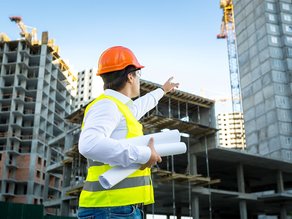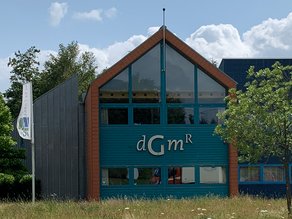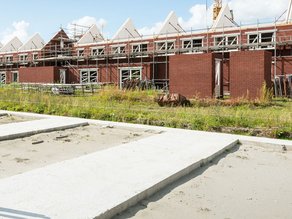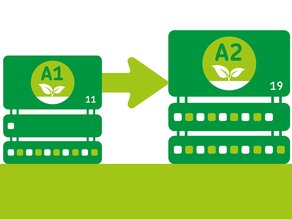Blog #20 European developments

The fact that decisions are made in Brussels that impact how we build in the Netherlands is nothing new for the construction industry. So, it is no surprise to us that Europe is focusing more on the environmental performance of construction products. At the NMD, we obviously applaud this.
In this blog I would like to tell you about the key European developments that we see on the horizon.
Construction Products Regulation (CPR)
One very important development that has been in the pipeline since 2022 is the revision of the European Construction Products Regulation (CPR).
The goal of this regulation is to promote free trade in construction products in the EU through harmonised rules. More widely known are the CE mark and the declaration of performance (DoP), which form the common language of this regulation. This makes it quick and easy to share information on a product’s performance.
For example, manufacturers have to demonstrate how their product scores in terms of safety or hygiene. What is interesting and new about this revision is that sustainability performance is set to become part of the regulation too.
At the same time, the Commission has shifted up a gear with an ‘Acquis’, setting out the changes in the form of harmonised standards. A vertical working group to draw up standardisation requests has been appointed for each product group, and a horizontal working group is attending to arrangements that will apply across the board. This means that changes arising from this process can be incorporated within the current CPR.
Together with the Ministry of the Interior and Kingdom Relations, the Ministry of Infrastructure and Water Management, Rijkswaterstaat (RWS), market players and the NEN, we are actively sharing Dutch knowledge and experience relating to environmental performance in construction. Our MPG system (for the environmental performance of buildings) is very unique, as already confirmed during this process. So, this is a great opportunity to promote our system more widely.
Although this process will take a while yet, we are of course getting a clearer picture all the time of the debate. A consensus has been pretty much achieved in some areas, while Member States are still ironing out other points. And this is also giving us a better idea of the impact on our Dutch approach. So, we can prepare for this well.
For instance, the regulation applies to 35 product groups, which means that some things such as installations are not covered. So, we will have to look at these specifically.
The Energy Performance Building Directive (EPBD)
The Energy Performance Building Directive (EPBD) is the main directive from Europe aimed at improving the energy performance of buildings. The European Commission, Council of Ministers and European Parliament have provisionally agreed on the EPBD IV revision.
This directive is consistent with Dutch policy and national objectives for making the built environment more sustainable. The revision was needed to further the aims of the climate policy and to boost the EU’s energy independence.
Zero-emission building (ZEB) will become the standard for new buildings from 2030. In terms of existing buildings, this standard will apply from 2050. And for new public buildings, it will apply from as early as 2028.
Emissions must be considered over the entire life of the building. As a result of the revision, material-related emissions (alongside operational emissions) will now count too, and this links to environmental performance. The foundations have therefore been laid with environmental performance in the Dutch Building Decree (Bouwbesluit, Bbl), and the rest of Europe is included with EPBD IV.
Conclusion
The developments described above are very important for making construction more sustainable. We are following them closely and doing what we can to play an active role. The Netherlands is at the forefront of efforts to make circular and sustainable construction measurable. So, we have a lot of knowledge and experience to contribute to Europe. And, of course, we are also taking plenty of inspiration from other Member States. We have forged connections with a number of countries.
Obviously, these and upcoming European changes will impact the extent to which the Netherlands still has free rein to continue building at the same pace. But European harmonisation and influence are important and also present opportunities.
It will become much easier to share data between Member States. And the more data, calculations and insights, the greater the incentive to innovate and become more sustainable. And that is what this is all about.
Read more



